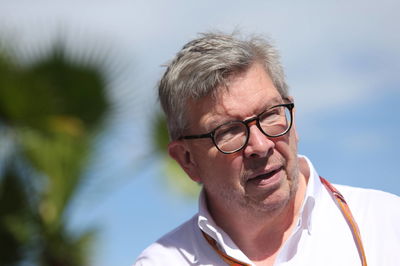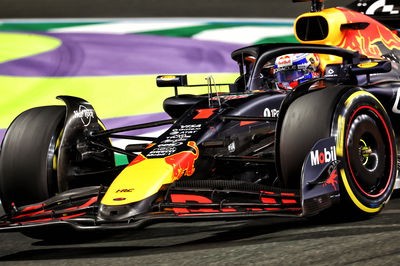Brawn: Some team orders prove to be pointless
Formula 1’s managing director of motorsports Ross Brawn has weighed into the team orders debate following the German Grand Prix which put both Mercedes and Ferrari under the spotlight.
Midway through the race at Hockenheim Ferrari were heard trying to subtly inform Kimi Raikkonen, who had pitted earlier than teammate Sebastian Vettel and gained track position, to not damage both his own and Vettel’s tyre strategies.

Formula 1’s managing director of motorsports Ross Brawn has weighed into the team orders debate following the German Grand Prix which put both Mercedes and Ferrari under the spotlight.
Midway through the race at Hockenheim Ferrari were heard trying to subtly inform Kimi Raikkonen, who had pitted earlier than teammate Sebastian Vettel and gained track position, to not damage both his own and Vettel’s tyre strategies.
The Finn asked for clarification which saw him allow Vettel to pass him, shadowing scenes from 2010 – coincidentally also at Hockenheim -, when Felipe Massa was told via a coded message to let Fernando Alonso overtake him.
Further team orders followed at Mercedes during the final laps when Valtteri Bottas attacked Lewis Hamilton for the lead of the race which prompted technical boss James Allison to tell the Finn to hold position in second place.
Brawn, himself no stranger to team orders controversy during his Mercedes, Brawn GP and Ferrari days, says the end result of any team orders is taken with the best ‘overall result’ in mind but accepts some calls end up being no consequential.
“During all my years spent on the pit wall, on several occasions I had to ask a driver to make a sacrifice, not out of a desire to favour his teammate, but so that the overall result would be the best possible for the team,” Brawn said in the post-race German GP review.
“It’s true that, with hindsight, some of these decisions proved pointless, but I can assure you that you take these decisions in the belief that even a single point can be decisive when it comes to winning or losing a championship.”
Brawn feels Mercedes’ call to Bottas to stay behind Hamilton had the bigger results, given Vettel’s crash from the lead for Ferrari, but understands the thinking by both teams in the tight Formula 1 world constructors’ championship fight.
“It was probably more straightforward for Raikkonen to let Vettel by on fresher tyres, but for Bottas to hear that he had to maintain position and not attack Hamilton, who was on older tyres, was perhaps a bit harder to take, given that at this point there were only a few laps to go,” he explained.
Hamilton’ dramatic German GP win saw him take a 17-point lead over Vettel in the F1 drivers’ standings, while Mercedes also overhauled Ferrari to take an eight-point advantage into this weekend’s Hungarian round.











